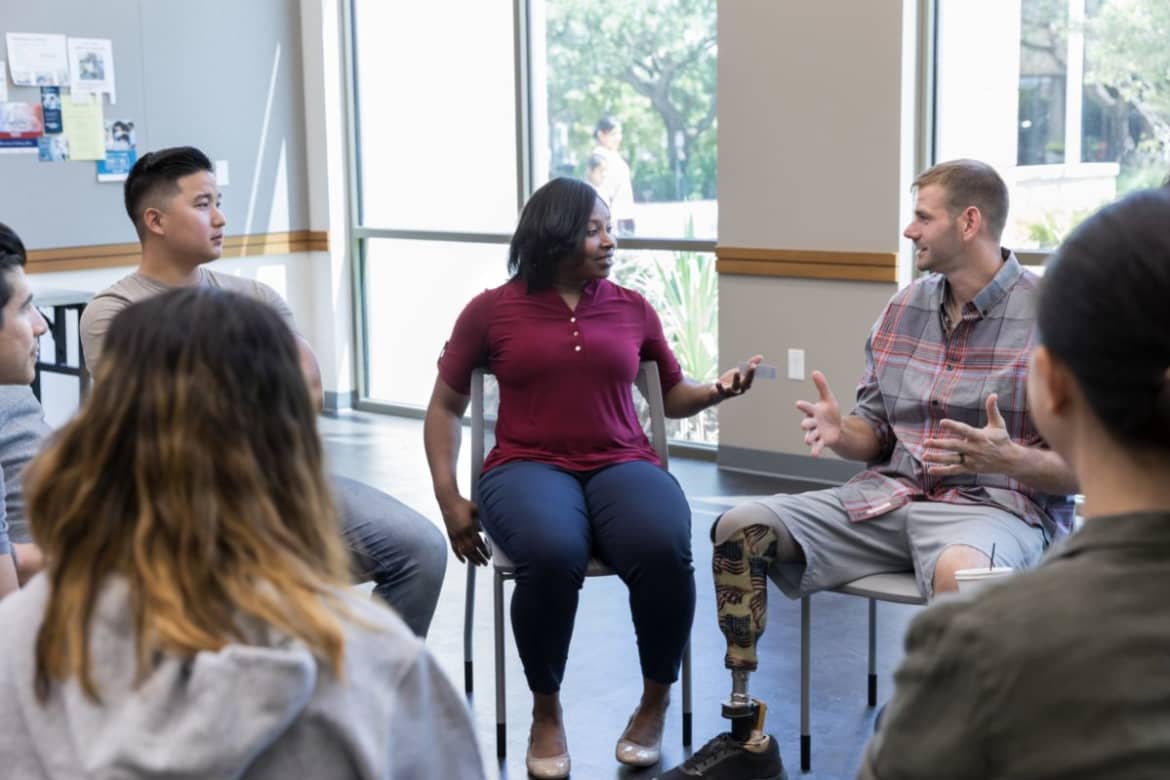Treatment for Younger Veterans
Younger veterans face a unique set of challenges after leaving the military. Learn to overcome the effects of addiction and trauma by calling (866) 390-5070.
Get Help Today
Veterans of the armed forces are celebrated, regardless of age. However, younger veterans can have a unique set of challenges while transitioning from service to civilian life. Not only are younger veterans met with regular difficulties when leaving the military, but there can also be a number of additional stresses prevalent.
From navigating addiction, trauma, post-traumatic stress disorder (PTSD), and other mental health disorders to finding a new career path, the need for professional treatment and recovery to support younger veterans is essential. We at Hawaii Island Recovery understand the unique needs of younger veterans. We are prepared to create a personalized treatment plan to establish a healthy, sober, and fulfilling life outside of the military.
Younger Veterans in the United States
The veteran community consists of a wide array of people of varying ages, sexes, races, and more. Of the veterans honorably discharged and leaving the military, about 21% are under the age of 45, according to a survey conducted in 2001. This leaves millions of veterans across the United States suffering from the unique challenges that younger veterans face.
From overcoming addiction and trauma to creating a fulfilling civilian life, professional treatment is necessary to balance each person’s recovery needs throughout this transition. Hawaii Island Recovery is prepared to empower younger veterans to pursue a healthy civilian life.

The Challenges of Younger Veterans
Younger veterans are uniquely susceptible to a number of personal stresses. From addiction and traumatic experiences to finding new and fulfilling communities, effective treatment and recovery from the challenges younger veterans face demands addressing the whole self. Understanding these stresses and creating a feeling of camaraderie is paramount in creating an effective plan for a healthier future.
Addiction and Mental Health Disorders
Military life is incredibly stressful. From one’s time in boot camp and on base to navigating an active warzone, the emotional and physical stresses of military life are immense. As a result, addiction and trauma are incredibly common among veterans of any branch of the military. For some, the trauma of losing a brother or sister in arms can birth feelings of shame or survivor’s guilt, while others may turn to the use of drugs or alcohol in an attempt to self-medicate these difficult feelings.
Addiction is also exceptionally prevalent among younger veterans. With pervasive drinking cultures common across military bases and the use of prescription painkillers to address injury or chronic pain, the use of addictive substances among younger military personnel is common. However, the use of these substances can fundamentally shape one’s relationship with drugs and alcohol outside of the military as well, and many veterans may develop addiction even at a young age.
Professional Treatment in Hawaii
If you or a loved one need help, call Hawaii Island Recovery toll-free right now.
866-390-5070These veterans are also profoundly affected by politics surrounding recent wars, birthing further feelings of depression, anxiety, trauma, and more. The prevalence of these difficulties makes it challenging to transition to civilian life and can leave younger veterans with mixed feelings regarding their time in the military. These feelings carry profound effects on younger veterans’ mental health as the increasing discourse surrounding military operations persists.
According to a study by the Centers for Disease Control and Prevention (CDC) in 2019, about 1.6% of veterans aged 18-25 reported making suicide attempts that year, nearly doubling from 2009 and making younger veterans at an increased risk for these challenges and necessitating professional treatment.
Finding a Community
Many younger veterans transitioning to civilian life will immediately be met with a unique challenge: finding an effective community where they belong. It can be difficult to connect with people who have not lived through similar life experiences, and veterans have an entirely unique perspective on daily life.

Finding dedicated veteran communities can be difficult. However, younger veterans can have an even more difficult time finding these supportive communities. With only about one in five younger veterans being around one’s age, it can be difficult to find communities where younger veterans can make meaningful connections with peers. One reason is that one’s time in service may be inherently different depending on one’s age and the wars served.
Transitioning to a New Career
Unlike retired veterans, younger veterans are tasked with transitioning out of a military lifestyle and finding alternative employment following their time in service. However, many military personnel join service out of high school, and finding a new career path can be difficult.
The stress of finding new employment, navigating interviews, and finding a new, fulfilling career are all incredibly challenging. Coupled with the struggles of overcoming addiction, trauma, mental health disorders, and more, younger veterans are faced with a myriad of challenges that each profoundly impacts their mental and emotional health. Professional treatment programs are essential in overcoming the use of addictive substances while also establishing the skills needed to pursue a healthy, sober life.
Finding Professional Treatment
At Hawaii Island Recovery, we understand the difficult nature of recovery, especially how it relates to the needs of younger veterans. Overcoming substance use disorder (SUD) and trauma while building the skills needed to pursue a healthy professional life after service is paramount. Hawaii Island is ready to help veterans of all ages and experiences create a path to a fulfilling and healthy future, all with the support of peers and professionals alike.
 Hawaii Island Recovery
Hawaii Island Recovery 









